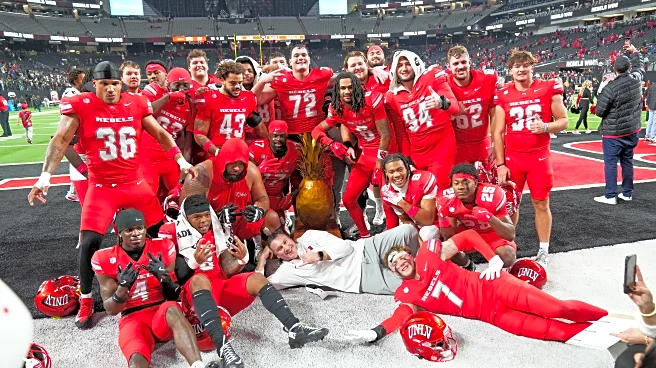What's Happening?
Brendan Fraser has chosen 'Rental Family' as his first film project following his Oscar win for 'The Whale.' The film premiered at the Toronto Film Festival and delves into the unique industry of renting companionship in Japan, a practice that has been growing since the 1980s. Fraser plays Phillip Vandarbleog, a struggling actor who moves to Japan and finds work through a rental family agency. His role involves filling emotional voids for clients, such as playing a mourner at a faux funeral. The film, directed by Hikari, addresses the issue of loneliness in modern society, particularly in Japan, and showcases various scenarios where rented companionship is sought.
Why It's Important?
The film 'Rental Family' highlights the increasing problem of loneliness and the unconventional methods people use to combat it. By focusing on the rental companionship industry, the film sheds light on societal changes and the need for human connection in an era dominated by social media. This narrative could influence perceptions of companionship and provide new opportunities for actors. Fraser's performance, along with a predominantly Japanese cast, adds authenticity to the film, which may resonate with global audiences and spark discussions on the importance of personal interactions.
What's Next?
The film is set for release on November 21, 2025, distributed by Searchlight Pictures. As audiences engage with the film, it may inspire conversations about loneliness and the role of rented companionship in society. The film's exploration of human connection could lead to broader discussions on how society addresses emotional needs and the potential for similar industries to emerge in other cultures.
Beyond the Headlines
The film's portrayal of rented companionship raises ethical questions about the commodification of human relationships. It challenges viewers to consider the implications of hiring strangers to fulfill emotional roles and the potential impact on genuine human connections. The narrative may also prompt reflections on cultural differences in addressing loneliness and the societal pressures that lead individuals to seek such services.











